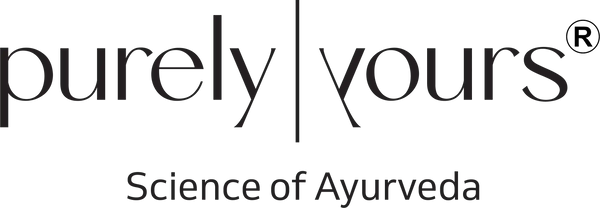
Early Signs of PCOS Every Woman Should Know
Share
Polycystic Ovary Syndrome (PCOS) is a common hormonal condition that affects millions of women worldwide, and especially in India. Recent studies suggest up to 17-20% of young women in urban India have PCOS. It often causes a range of symptoms that women (and even doctors) may overlook. PCOS is essentially a hormonal imbalance (too much androgen, or “male” hormones) that disrupts ovulation and menstrual cycles. For example, women with PCOS typically have fewer than nine periods a year or very long cycles. Early detection is important as untreated PCOS raises the risk of diabetes, heart disease, and infertility. Understanding the subtle clues of PCOS can help women get diagnosed and manage it sooner.
Understanding PCOS: What Happens in the Body
PCOS often begins during the teen years or early 20s, around the first menstrual period. It causes the ovaries to produce excess androgens (male hormones), leading to hormonal imbalance. As studies explain, this imbalance leads to irregular or absent periods, extra facial/body hair, acne, and even fertility problems. The underlying issue is often insulin resistance, which makes the body churn out more insulin and worsens the hormonal imbalance. Over time, insulin resistance contributes to weight gain and dark skin patches (acanthosis nigricans) in many PCOS patients. In India’s urban lifestyle with sedentary habits and diet changes, PCOS cases are on the rise.

Common Early Signs of PCOS
Many early PCOS symptoms can seem like it's “normal” or be blamed on stress, so they are easy to miss. Key warning signs include:
- Irregular periods: Having very infrequent, skipped, or heavy periods is often the first sign of PCOS. For example, a study notes that women with PCOS may have fewer than 9 periods a year or cycles lasting longer than 35 days. Missing periods for months or unpredictable cycles is not “just stress”, it’s a red flag.
- Unwanted hair growth and acne: High androgen levels in PCOS can cause hirsutism-extra thick hair on the face, chin, chest, or back, as well as persistent acne or oily skin. In fact, the CDC lists acne and new facial/body hair growth as classic PCOS symptoms. Many women ignore worsening acne or peach-fuzz hairs (vellus hair) as just teenage issues, but in PCOS, they often worsen or start in adulthood.
- Sudden weight gain and skin changes: Unexplained weight gain (especially belly fat) is common in PCOS. Insulin resistance makes it very hard to lose weight. As the CDC fact sheet explains, PCOS often causes weight gain and dark velvety patches on the neck or armpits (acanthosis nigricans). Even if you don’t feel very overweight, a BMI increase or these dark patches are clues. Notably, even a small weight loss can help, as experts say losing just 5% of body weight can improve PCOS symptoms.
- Hair thinning (alopecia): Paradoxically, PCOS can also make hair on the scalp thin or fall out in patches. Studies note that people with PCOS may notice a receding hairline or diffuse hair loss, similar to male-pattern baldness. A woman suddenly shedding more hair than usual or noticing a widening part line should have her hormone levels checked, as this is often an early sign of androgen excess.
Each sign above alone can have other causes, but seeing several together should raise suspicion of PCOS. For example, many women assume their acne is just “adult acne” or their missed periods are due to stress, never considering PCOS. But spotting these clues early matters, because PCOS can impact fertility and long-term health if untreated.

When to Talk to Your Doctor
Don’t wait to bring these symptoms to your doctor’s attention. It is advised to see a healthcare provider if you have missed or irregular periods, or if you notice excess facial/body hair or severe acne. A doctor can check your hormone levels and look for polycystic ovaries via ultrasound. Early diagnosis lets you start treatment to manage symptoms and reduce risks. For instance, modest lifestyle changes (a healthier diet and regular exercise) can make a big difference; even losing 5% of body weight can improve PCOS-related irregularities. But the first step is awareness.
In India today, awareness is crucial. PCOS is sometimes called PCOD in clinics and remains underdiagnosed. Remember that common complaints like stubborn weight, acne, or unpredictable periods may not be “just puberty”. Keeping a menstrual diary (tracking cycle length, bleeding, and other symptoms) and asking for a PCOS work-up can pay off.
Takeaway: Don’t Ignore the Clues
PCOS is a spectrum; while some women have mild symptoms, others have severe ones. Key ones to watch for include missing periods, weight changes, excess hair, acne, and skin discolouration. If these sound familiar, get checked early. The sooner PCOS is detected, the sooner you can manage it. Lifestyle adjustments (balanced diet and regular exercise) and medical guidance can greatly improve health outcomes. In short: stay alert to these sneaky PCOS signs, and seek help without delay; your body will thank you later.
